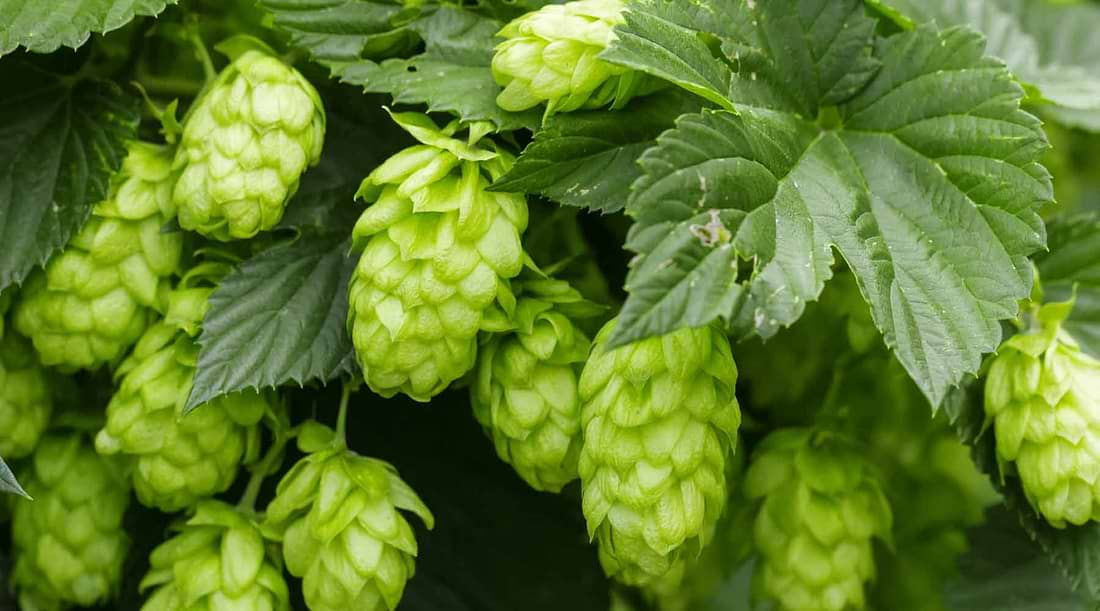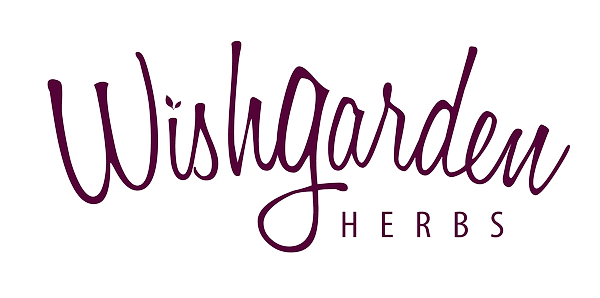
Hops: Whispers of the Brew Master's Garden
Written by Rebecca Younger, CH, CDShare
Hey there, herbal enthusiasts!
Welcome back to another edition of WishGarden’s Herb of the Month! This month, we're taking a deep dive into the world of hops, the herb that's not just for making your favorite IPA (though we do love a good craft brew), but also provides major body benefits.
Get ready to hop into some botany, medicinal magic, historical hi-jinks and, of course, a lip-smacking recipe that'll make you the hoppiest person at any gathering.

Botany: The Hoppy Green Delight
Let’s start with a little botany 101. Hops, scientifically known as Humulus lupulus, are the flowering cones of the female hop plant also called “hops strobiles.” These perennial climbers can grow up to 25 feet tall (talk about reaching new heights!) and belong to the Cannabaceae family. Yes, you heard right—the same family as cannabis! No wonder hops are so chill.
These green beauties are dioecious, meaning there are distinct male and female plants. The female flowers are the ones we prize, packed with lupulin glands that give hops their characteristic aroma and flavor. Think of them as nature’s tiny treasure chests brimming with valuable aromatic oils and resin.
Medicinal Uses
Hops to the Rescue! Now, hops aren’t just for your favorite beer; they’ve got some serious herbal street cred. Hops have been used for centuries in traditional medicine for their soothing, calmative properties. But they also contain constituents that support our immunity and gut health. Here are some of the ways hops can be your herbal BFF:
Sleep Aid Extraordinaire: Tossing and turning? Hops have got your back. Their seriously soothing properties make them a popular ingredient in natural sleep aids. Incorporate hops in your nighttime routine and you’ll be drifting off to dreamland in no time.
Anxiousness Antidote: Feeling frazzled? Hops can help mellow you out. They’ve been shown to reduce feelings of anxiousness and promote relaxation, making them perfect for those stressful days.
Digestive Dynamo: Hops can also give your digestive system a boost. Their bitter compounds stimulate appetite and aid digestion. So, next time you’re feeling a bit off, reach for some hop-infused bitters.
History and Folklore: Hopping Through Time
Hops have a rich history that’s as fascinating as it is flavorful. Let’s time travel a bit, shall we?
Hops were first cultivated in ancient China, but it was the Germans who truly fell in love with them around the 8th century. By the 12th century, hops were making their way into beer, thanks to some forward-thinking Benedictine monks. These hops not only added flavor but also acted as a preservative and foam stabilizer, revolutionizing the brewing process.
Folklore Fun
Hops have their share of folklore too. In medieval Europe, hop pillows were a popular remedy for those having trouble sleeping. It was believed that placing a sachet of hops under your pillow would ward off bad dreams and ensure a restful sleep. And let’s not forget the old wives’ tale that hops could cure melancholy—just another reason to keep this herb close at hand!
WishGarden Loves Hops!
We rely on hops to enhance many of our radical remedies. Here’s a list of where you’ll find them, and how they support our health:
- Badass Bitters – Hops’ bitter qualities make this pre-meal formula a game changer for your digestive tract.
- Kick-Ass Biotic – Hops are resinous, and resins helps our immune system fight all kinds of bugs!
- Serious Cough PM Soothing Syrup – Cough keeping you up at night? Let hops soothe your sleep schedule while supporting your immune system.
- Serious Relaxer – The soothing qualities of hops helps this formula calm your nerves and muscles like a hot tub in a bottle!
- Sleepy Nights – No need to suffer in your slumber. Let hops, passionflower and scullcap sing you to sleep.
- Happy Ducts – Clogged and uncomfortable? Hops adds a kick to this formula by supporting immunity and helping you to get your flow back.
And there you have it! Enjoy the wonders of hops, from their fascinating history to their soothing benefits and delightful recipes. Here's to happy, healthy herb adventures!
Rebecca Younger is passionate about herbs and women's health. She aspires to plant seeds of inspiration within her community about plant medicine and healthier ways of life. She studied Herbal Medicine at Herbalism Roots in Denver and is a certified Doula through the Matrona Foundation. She is the Brand Communications Specialist at WishGarden Herbs.
For educational purposes only. This information has not been evaluated by the Food and Drug Administration. This information is not intended to diagnose, treat, cure, or prevent any disease, or to sell any product.





















